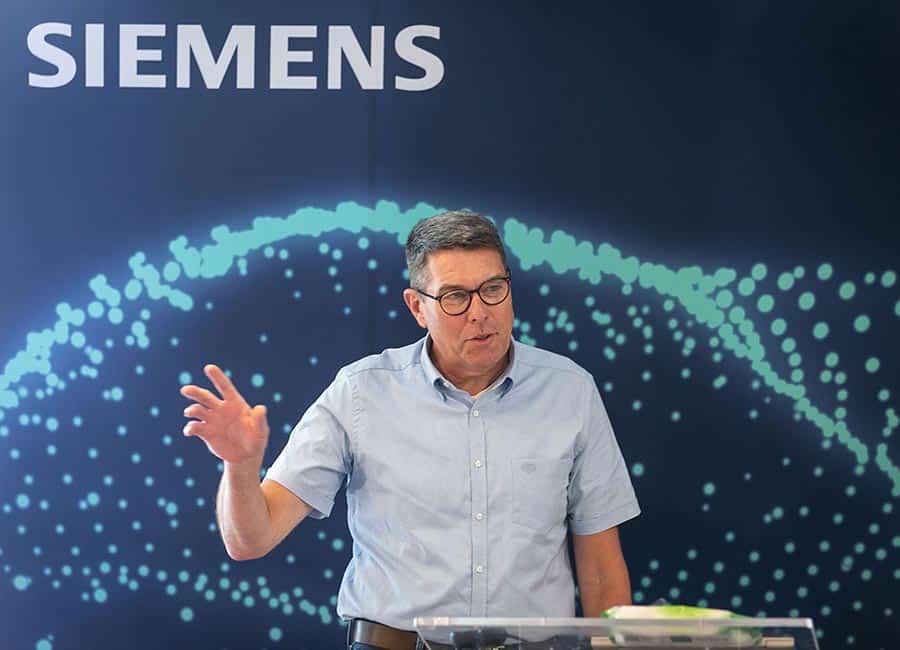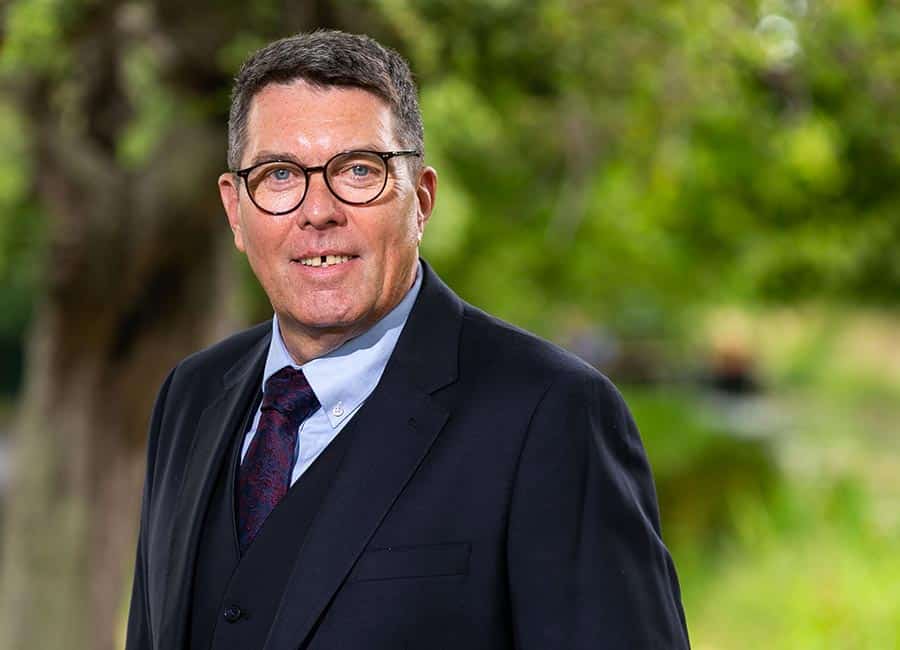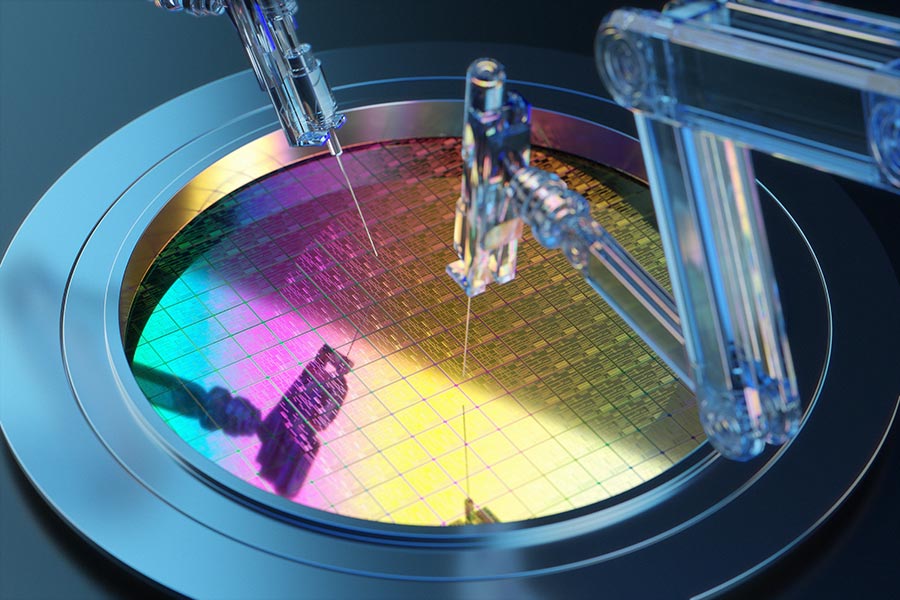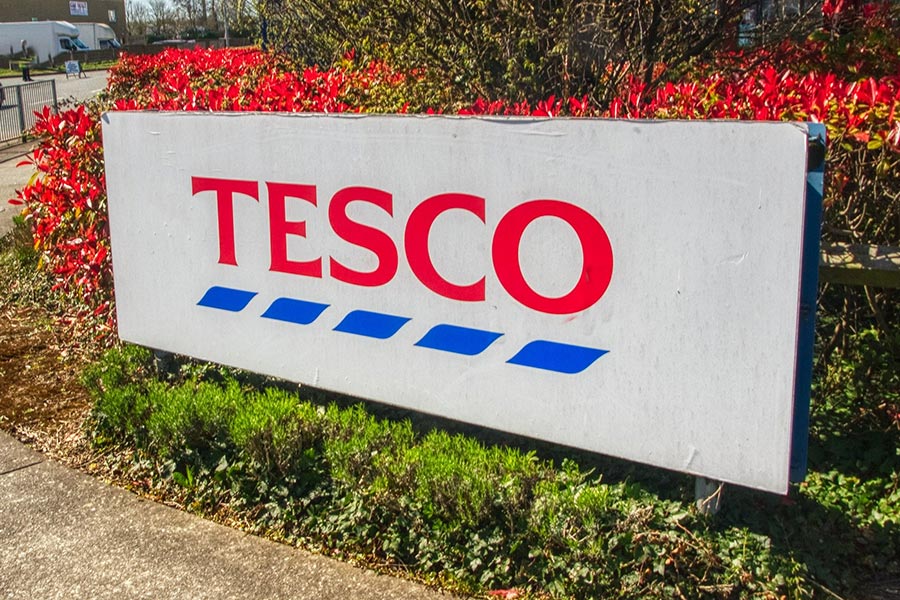The Siemens DEGREE framework defines concrete initiatives and sets clear, ambitious targets for all core topics that the company will drive together with its customers, writes Joe Walsh, General Manager, Siemens Limited Ireland
Siemens has an enviable track record across all three dimensions of ESG: Environmental, Social and Governance. In 2015, we were one of the first industrial companies to commit to net zero by 2030, and we have already more than halved our CO2 emissions since. And our customers saved 150 million tons of CO2 using our products last year. On the social side, we invested more than €250m in 2021 in education and training for our people, leveraging about 100,000 digital learning assets. Furthermore, we have clear ESG governance in place and have integrated ESG components into our incentive scheme.
Building technology with purpose
This underscores how sustainability has been a priority for Siemens for years. It is embedded in our strategy, our technology, our portfolio and our operations. In other words, it is in our very DNA. Going forward, we will of course continue to optimize and decarbonize our own operations. By signing the Science Based Targets initiative (SBTi), we have extended our commitment to the entire value chain. We believe that we can create the greatest impact by supporting our customers in their transition, by helping them to shift their focus to sustainable solutions, turning possible risks into competitive advantage through our technology and innovation.
Siemens has unique expertise in managing this transition in a way that leverages sustainability as a growth engine, transforms supply chains and protects workers, while creating new opportunities and ensuring business success in a rapidly changing world. We not only provide our customers with the software and the hardware of a smarter and greener future – we show them how to make a smoother and cost-effective leap into this future.
Let’s take an example from the automotive industry, where we are working with Mercedes-Benz to advance digitalization in engineering and sustainable production methods. Our cooperation will support Mercedes-Benz in meeting the challenge of building flexible, CO2-neutral factories, whilst also enabling the upskilling and reskilling of their workers.
Another example is our microgrid solution in the Azores archipelago, which enables the share of renewables to increase to 60% whilst significantly reducing CO2 emissions. Our Mireo Plus Battery trains provide emission-free passenger transport locally, e.g. for commuters in Baden-Württemberg (Germany). These trains achieve up to 25% energy savings throughout operations compared to previous models and, on top of this, 95% of the components can be recycled at the end of the lifecycle.
A 360-degree impact that creates value for all stakeholders
What are the greatest challenges our societies are facing today? Urbanization and demographic change, decarbonizing whilst meeting increasing energy demand, building competitive industries with reliable supply chains, and developing efficient infrastructure – to name only a few. Yet the toughest challenge we are facing collectively on this planet is limiting global warming to 1.5 degrees Celsius, as per the Paris Agreement. The answers to these challenges matter – for the quality of life of people today and generations to come.
Every degree counts as we strive to responsibly meet the needs of an ever-evolving future. This is why we are taking our ESG commitment to the next level now with our DEGREE framework. It constitutes a 360-degree approach for all stakeholders – our customers, our suppliers, our investors, our people, the societies we serve, and our planet. In addressing the three aspects of ESG, we are building a better future at Siemens that helps us stay within the planetary boundaries; that fosters a culture of trust, empowerment and growth; that supports inclusive economic opportunities; and that ensures our people and our businesses remain resilient and relevant for whatever the future holds.

What does the DEGREE framework entail?
Each letter in DEGREE represents an area where we are committed to giving ourselves clear targets. These are Decarbonization, Ethics, Governance, Resource efficiency, Equity and Employability. This comprehensive framework sets a very high level of ambition and will guide us in the way we do business, and how we measure and hold ourselves accountable to progress.
Let’s take a closer look at each area:
- Decarbonization: We are not only aiming to be carbon neutral in our own operations by 2030, but we are also extending our commitment to all emissions connected to us, from our supply chain to the use phase of our portfolio by our customers.
- Ethics: We are committed to fostering a culture of trust. Our values and ethical standards are anchored in our Business Conduct Guidelines, on which we train all our people globally at least every three years. Compliance remains a top priority for Siemens. We are recognised as the industry leader in cybersecurity and co-founded the Charter of Trust initiative to protect data and drive cybersecurity in a trusted digital world. We are also committed to the UN Global Compact, and the UN Guiding Principles on Business and Human Rights.
- Governance: There is clear evidence that strong governance correlates with better, more sustainable business. Good governance is built into our state-of-the-art management systems, and we also extend that to our supplier base, which constitutes around 65,000 suppliers. A commitment to our Supplier Code of Conduct is the basis for an ESG-secured supply chain. Finally, we have included ESG criteria in our long-term incentives program, both for the Board and our Senior Management.
- Resource efficiency: Here, we want to advance recycling and circularity. With our Eco Efficiency Program, we have set a standard in designing eco-compatible products. Our Digital Twin technology offers sustainable options for every component part in the design phase of a product. And by 2030, 100% of all relevant product families will be covered by an eco-design approach. We will also focus on decoupling natural resources through increased purchase of secondary materials for metals and resins, and we are reducing our waste to landfill to zero by 2030.
- Equity: Equitable treatment and respect form the core of our value system. We aim to be the employer of choice and foster diversity, inclusion, and community development to provide a sense of belonging and a safe environment in which all our people can contribute their best.
This is underpinned by several targets. By 2025, 30% of our top management will be female. We were one of the first corporations to commit to a two-to-three day mobile working policy for 140,000 of our people in the New Normal, fostering a culture based on trust and empowerment. And through our employee share plans, our people widely participate in Siemens’ success also as shareholders.
- Employability: In a permanently changing environment, it is crucial that we remain resilient and relevant as a business and as individuals if we want to be successful over the long term. At Siemens, we continuously invest in upskilling and reskilling our people, support their willingness to experiment and learn, and help them develop a personal growth mindset. We have hardwired our ambitions, again, in targets by which we want to be measured: digital learning hours for our people, access to mental health and assistance programs, and our people’s physical safety, which is immensely important for us.
Sustainability is good business
As you can see from this overview, with our DEGREE framework we have now defined concrete initiatives and set clear, ambitious targets for all core topics that we will drive together with our customers. It builds on our strong track record and on our technology with purpose that is fully embedded in our business strategy. At Siemens, advancing sustainability is not an option - it’s a business imperative.
We are convinced that each step forward today, each degree we can shift, is in service of something bigger. Creating value for all our stakeholders, driving sustainable growth with our customers, and creating a better tomorrow for everyone, are not mutually exclusive goals. We believe that what’s good for our business and what’s good for people and our planet go hand in hand – and that is at the heart of what we do.










